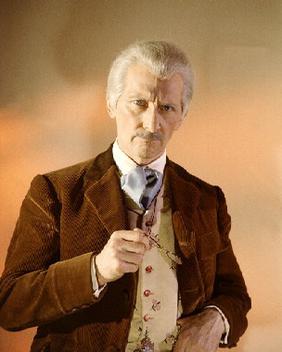CHANGING THE GAME
PBS documentary reveals the ‘Ruthless’ history behind Monopoly
BY ADRIAN GOMEZ JOURNAL ARTS EDITOR
Stephen Ives says the majority of Americans have sat down to play the board game Monopoly. “We can all probably count on one hand how many times we’ve actually finished it and declared a winner,” he says with a laugh. “The game really helps us understand the American way.” Ives is at the helm of the documentary, “Ruthless: Monopoly’s Secret History,” as writer, director and producer. The documentary airs at 8 p.m. Monday, Feb. 20, New Mexico PBS, channel 5.1. It is airing under the American Experience umbrella and will also be available to stream on the PBS Video app. Ives says the iconic board and game pieces — from the diminutive robber baron Rich Uncle Pennybags to the Get Out of Jail Free card to the tiny thimble and top hat — are instantly recognizable. He says it may be only a game, but the popularity of Monopoly speaks volumes about who we are and what we value.
Contrary to the folksy legend spread by Parker Brothers, Monopoly’s secret history is a surprising saga that features a radical feminist, a community of Quakers in Atlantic City, America’s greatest game company, and an unemployed Depression-era engineer.
PBS documentary reveals the ‘Ruthless’ history behind Monopoly
BY ADRIAN GOMEZ JOURNAL ARTS EDITOR
Stephen Ives says the majority of Americans have sat down to play the board game Monopoly. “We can all probably count on one hand how many times we’ve actually finished it and declared a winner,” he says with a laugh. “The game really helps us understand the American way.” Ives is at the helm of the documentary, “Ruthless: Monopoly’s Secret History,” as writer, director and producer. The documentary airs at 8 p.m. Monday, Feb. 20, New Mexico PBS, channel 5.1. It is airing under the American Experience umbrella and will also be available to stream on the PBS Video app. Ives says the iconic board and game pieces — from the diminutive robber baron Rich Uncle Pennybags to the Get Out of Jail Free card to the tiny thimble and top hat — are instantly recognizable. He says it may be only a game, but the popularity of Monopoly speaks volumes about who we are and what we value.
Contrary to the folksy legend spread by Parker Brothers, Monopoly’s secret history is a surprising saga that features a radical feminist, a community of Quakers in Atlantic City, America’s greatest game company, and an unemployed Depression-era engineer.


Muhammad Ali and children playing Monopoly at home. COURTESY OF STEVE SCHAPIRO/CORBIS VIA GETTY IMAGES
According to the official origin story, during the Great Depression, an amateur inventor named Charles Darrow sketched out the nowfamous Monopoly board on a piece of oilcloth on his kitchen table. His game became a bestseller, Darrow became a wealthy man, and Parker Brothers was saved from bankruptcy. It was a classic American success story. But it wasn’t true. The real story behind the creation of the game might never have come to light if it weren’t for the determination of an economics professor and impassioned anti-monopolist named Ralph Anspach.
Fed up with the OPEC oil cartels and gas shortages in the 1970s, Anspach created “Anti-Monopoly,” which retained the fun of the original game but made it clear that the monopolists were the bad guys. General Mills, which owned Parker Brothers, was not amused and sued Anspach, ordering that he cease and desist selling his game. As part of his defense strategy, Anspach sought to prove that the Monopoly trademark was dubious and investigated the game’s early history before it was acquired by Parker Brothers. The ensuing investigation and David vs. Goliath legal battle would consume Anspach’s life for over a decade.
Anspach discovered that the game was invented in 1904 by Lizzie Magie, a feminist, actor, poet, engineer and follower of the radical economic theories of the influential writer and public speaker Henry George. George believed that a single tax on land would reduce inequality and promote a more just society. Magie hoped to promote George’s ideas through the power of game, and she invented “The Landlord’s Game,” which was designed to illustrate the evils of landlords and monopolistic practices.
Magie’s creation spread first on college campuses, with players across the country making their own boards. The game found its way to a community of Quakers in Atlantic City who added local street names — like Oriental Avenue, Marvin Gardens and, of course, Park Place and Boardwalk — to their boards. Decades later, when a Quaker couple invited their friends Charles Darrow and his wife to play the game, the unemployed Darrow saw a way out of his Depression era woes. He asked his host to make him a replica of the board and type up the rules, then he began producing and marketing it himself. In 1935, Darrow sold his “invention” to the struggling Parker Brothers.
Ives worked on the documentary for a year in total, though the idea for the piece began about 20 years ago. “Monopoly is a right of passage for many,” he says.
“I was able to do an interview with Ralph about 19 years ago. I’m incredibly grateful it happened. This was the impetus to the documentary. It’s a look at why the game is popular and forces us to take a look at American capitalism.”


Professor Ralph Anspach, who produced his own version of the board game Monopoly, called Anti-Monopoly. COURTESY OF MONTY FRESCO/ANL/SHUTTERSTOCK


Ralph Anspach, inventor of the Anti-Monopoly game, who was sued by the owners of Parker Brothers and ordered to stop producing the game. COURTESY OF ASSOCIATED PRESS

COURTESY OF PUBLIC DOMAIN. WIKIMEDIA Lizzie Magie, who invented The Landlord’s Game in 1904.



